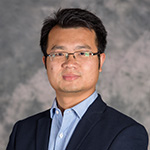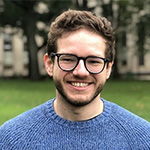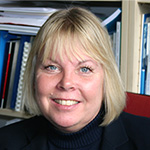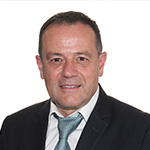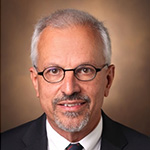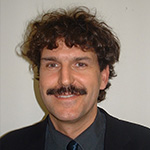Division Awards
Battery Division Early Career Award Sponsored by Neware
Wednesday, 1500h / Room A2
Towards Scalable and Sustainable Battery Recycling for Circular Energy Storage
by Zheng Chen
Zheng Chen is Associate Professor in the Department of Nano and Chemical Engineering, and Materials Science and Engineering at the University of California, San Diego. His research focuses on understanding the fundamental properties of electrochemical interfaces and structures as well as designing materials and processes for more efficient and sustainable energy storage and conversion.
Prof. Chen received his BS from Tianjin University in 2007 and PhD from the University of California, Los Angeles, in 2012 (with Prof. Yunfeng Lu), both in Chemical Engineering. He did his postdoctoral research at Stanford University with Profs. Zhenan Bao and Yi Cui before joining UC San Diego in 2016. In 2018, Prof. Chen received the NASA Early Career Faculty Award and American Chemical Society Petroleum Research Fund Doctoral New Investigator Award, and in 2017, the LG Chem Global Battery Innovation Contest Award. He was a Scialog Fellow in Advanced Energy Storage from 2017-2019 and was invited to participate in the National Academy of Engineering’s 2023 Germany-America Frontiers of Engineering Symposium and 2019 China-America Frontiers of Engineering Symposium.
Battery Division Early Career Award Sponsored by Neware
Wednesday, 1600h / Room A2
Understanding Interfacial Mechanisms that Govern Performance in Solid-State Batteries
by Matthew McDowell
Matthew McDowell is an Associate Professor and Woodruff Faculty Fellow at the Georgia Institute of Technology with appointments in the Woodruff School of Mechanical Engineering and School of Materials Science and Engineering. His research focuses on developing and characterizing battery materials and systems, including solid state batteries, Li-ion batteries at low temperatures, and novel anode materials. The McDowell Group develops and uses a variety of in situ and operando materials characterization techniques to understand the dynamic evolution of battery materials.
Prof. McDowell completed his PhD at Stanford University in 2013 and postdoc at the California Institute of Technology from 2013-2015. He has received numerous awards, including the Presidential Early Career Award for Scientists and Engineers, Sloan Fellowship, NSF CAREER Award, NASA Early Career Faculty Award, Air Force Office of Scientific Research Young Investigator Award, Office of Naval Research Early Career Grant, and Georgia Tech’s Outstanding Achievement in Early Career Research Award.
Battery Division Postdoctoral Associate Research Award Sponsored by MTI Corporation and the Jiang Family Foundation
Wednesday, 1440h / Room A2
Aqueous Batteries for Grid-Scale Storage: Beyond Highly Concentrated Electrolytes
by David Reber
David Reber is a Schweizerischer Nationalfonds Ambizione project leader at the Eidgenössische Materialprüfungs- und Forschungsanstalt (Empa). His research focuses on aqueous flow batteries, aiming to decouple energy density from active material solubility. Prior to his current position, Dr. Reber was a Postdoctoral Associate in Prof. Michael Marshak’s group at the University of Colorado Boulder, where he worked on enhancing the solubility of various metal-organic chelates for flow battery electrolytes. Guided by Prof. Corsin Battaglia and Prof. Frank Nüesch, he received his PhD from the École Polytechnique Fédérale de Lausanne in 2020. He conducted his thesis work at Empa, where he developed highly concentrated electrolytes for high-voltage aqueous batteries. During that time, he also worked at the University of Tokyo with Prof. Atsuo Yamada. Prof. Silvio Decurtins, Prof. Peter Broekmann, and Prof. Wenjing Hong advised him through his BS and MS in Chemistry at the Universität Bern.
Battery Division Research Award
Wednesday, 1720h / Room A2
Advanced Characterization of Electrochemical Interfaces and Systems for Next-Generation Batteries
By Y. Shirley Meng
Y. Shirley Meng is Professor at the Pritzker School of Molecular Engineering at the University of Chicago and Chief Scientist at the Argonne Collaborative Center for Energy Storage Science, Argonne National Laboratory. Since 2009, Dr. Meng has been the principal investigator of the research group, Laboratory for Energy Storage and Conversion (LESC), at the University of California, San Diego (UCSD), which has spun out start-up companies, including South 8 Technologies and UNIGRID.
Prof. Meng received her PhD in Advanced Materials for Micro- and Nano-Systems from the Singapore-MIT Alliance for Research and Training in 2005 after completing a BS in Materials Science with first class honors at the Nanyang Technological University in 2000. She held the Zable Chair Professor in Energy Technologies at UCSD from 2017-2022. Dr. Meng has received prestigious awards including the 2022 C3E Technology and Innovation Award, 2020 Faraday Medal, 2019 International Battery Association IBA Research Award, 2018 Blavatnik Awards for Young Scientists Finalist, 2018 American Chemical Society (ACS) Applied Materials & Interfaces Young Investigator Award , 2016 ECS Charles W. Tobias Young Investigator Award, and 2011 NSF CAREER Award. Dr. Meng is an elected Fellow of The Electrochemical Society, Fellow of Materials Research Society, and Fellow of American Association for the Advancement of Science. She is author and co-author of more than 285 peer-reviewed journal articles, two book chapters, six issued patents, and serves as Editor-in-Chief for MRS Energy & Sustainability.
Battery Division Student Research Award Sponsored by Mercedes-Benz Research & Development
Wednesday, 1400h / Room A2
Quantitative SEI-based Descriptors For Li metal Liquid Electrolyte Design
By Gustavo Hobold
Gustavo M. Hobold is a PhD candidate in Mechanical Engineering at the Massachusetts Institute of Technology (MIT), working with Prof. Betar Gallant. His research focuses on developing a quantitative understanding of the functional properties and chemical composition of solid electrolyte interphases (SEI) formed natively on Li anodes. Hobold’s work leverages in situ experiments and high-throughput post-mortem titration-based techniques to precisely quantify the formation of a wide range of SEI phases and decipher capacity loss mechanisms in modern high Coulombic efficiency (CE) electrolytes. Ultimately, his work revealed several quantifiable SEI-based descriptors that can guide future liquid electrolyte discovery, aiming to breach >99.9% CE. Prior to MIT, Gustavo received an Engineering degree and MS in Mechanical Engineering from the Universidade Federal de Santa Catarina.
Battery Division Student Research Award Sponsored by Mercedes-Benz Research & Development
Wednesday 1420h / Room A2
Rationalizing Fast Lithium-ion Diffusion in Inorganic Lithium Superionic Conductors
By KyuJung Jun
KyuJung Jun is a PhD candidate in the Department of Materials Science and Engineering at the University of California, Berkeley, advised by Prof. Gerbrand Ceder. Jun’s research focuses on computational understanding of energy materials for sustainability. Specifically, he has contributed to the field by elucidating the lithium ion diffusion mechanism in lithium superionic conductors for all-solid-state batteries. His work involves studying the structural and dynamic factors that influence lithium ion diffusion, leading to the discovery of numerous novel lithium superionic conductors. Jun also developed event-based algorithms to quantify ion-ion (or anion-group) correlations in inorganic materials. This led to mechanistic insights into the impact of anion-group rotations on lithium ion diffusion. His research approach combines fundamental thermodynamics, first-principles calculations, and machine-learning-accelerated molecular dynamics simulations. Jun’s work has been published in journals including Nature Materials and Advanced Energy Materials. He holds a BS from Seoul National University.
Battery Division Technology Award
Wednesday, 1640h / Room A2
An Odyssey Through the Uncharted Waters of Post Lithium-Ion Batteries
By John Muldoon
John Muldoon is Senior Principal Scientist at the Toyota Research Institute of North America (TRINA). He contributes consistently to the company’s sustainable mobility platforms, studying materials for fuel cells, batteries, and carbon dioxide capture and conversion. His research leadership has greatly contributed to the company’s beyond lithium ion battery research programs, shaping global research trends on multivalent ion, lithium sulfur, and solid state lithium metal batteries.
Dr. Muldoon completed his PhD at the University of Notre Dame under the direction of Prof. Seth Brown, specializing in organometallic chemistry, after receiving a BS with honors in Chemistry from Queens University. He worked as a Research Associate at Scripps Research under Prof. Barry Sharpless (2001 and 2022 Nobel laureate in Chemistry) and Prof. Valery Fokin, establishing early applications of click chemistry. Dr. Muldoon has received over 6000 citations and holds over 35 patents. He is a Fellow of The Electrochemical Society and the Royal Society of Chemistry.
An active ECS and battery division committee member, Dr. Muldoon was instrumental in establishing symposia at ECS meetings on beyond-Li-ion battery research. To advocate for the development of younger scientists, he cultivated the relationship between the ECS and Toyota, which resulted in the establishment of the ECS Toyota Young Investigator Fellowship in 2016.
Corrosion Division H. H. Uhlig Award
Tuesday 1620h / Room B1
A Journey From Ice-Breakers to Biomedical Implants: Multifacets of Corrosion
By Sannakaisa Virtanen
Sannakaisa Virtanen is Professor for Surface Science and Corrosion in the Department of Materials Science at the Friedrich-Alexander-Universität Erlangen-Nürnberg (FAU). Her research employs advanced electrochemical and surface analytical tools to focus on the elucidation of reaction mechanisms at solid/liquid- and solid/gas-interfaces, and passivity, localized corrosion, oxidation, corrosion, and degradation behavior of advanced metallic materials. A strong focus in the last decade has been on the corrosion behavior of metallic materials used in biomedical devices, including biodegradable metals such as Mg alloys.
Prof. Virtanen studied metallurgy at the Helsinki University of Technology, then completed her PhD at the Eidgenössische Technische Hochschule Zürich (ETH-Zurich). She was Senior Scientist at ETH-Zürich with research stays at the Brookhaven National Laboratory and McMaster University. In 1997, she was appointed Assistant Professor in the Department of Materials at ETH-Zürich, and then joined FAU Erlangen as professor in 2003.
Prof. Virtanen is the author of more than 280 peer-reviewed publications with an h-index of 54. She received the 2008 National Association of Corrosion Engineers (NACE) H.H. Uhlig Award and was elected Fellow of The Electrochemical Society in 2018 and NACE Fellow in 2020. She chaired the Gordon Research Conference on Aqueous Corrosion in 2016. Prof. Virtanen is an active member of ECS having served the Society in a number of functions including Chair of the ECS Corrosion Division.
Corrosion Division Morris Cohen Graduate Student Award
Tuesday 1500h / Room B1
Evolution of Passivity and Passivity-Breakdown for Cr and Cr-Containing Alloys
By Sanjay Choudhary
Sanjay Choudhary is a Postdoctoral Research Associate with Prof. Robert G. Kelly at the University of Virginia where he studies localized corrosion characteristics of Al-alloys used in aerospace and stainless-steel dry storage containers, using in situ transmission electron microscopy and finite element modeling.
After completing a BTech in Metallurgical Engineering at the National Institute of Technology Raipur in 2014, he received the MTech in Materials Science and Engineering from the Indian Institute of Technology Kanpur in 2016. As part of his MTech research, he studied the evolution of rust layer on mild steel structures during atmospheric corrosion under Prof. Kallol Mondal’s supervision. From 2016-2018, he worked as a Researcher with TATA Steel India Ltd., where he investigated the evolution of oxide scale during hot rolling and localized corrosion in steel plates. Dr. Choudhary obtained his PhD in Materials Science and Engineering from Monash University in 2022. Under the supervision of Prof. Nick Birbilis and Dr. Sebastian Thomas, he studied the evolution of passivity and passivity breakdown in Cr and Cr-containing alloys including stainless steel and multi-principal element alloys.
Corrosion Division Rusty Award for Mid-Career Excellence
Tuesday 1540h / Room B1
Enhancing the Corrosion Resistance of Additively Manufactured Metallic Materials: The Role of Feedstock Modification
By Rajeev Kumar Gupta
Rajeev Gupta is Associate Professor of Materials Science and Engineering at North Carolina State University (NCSU) with primary research interests in the broad areas of corrosion and material engineering. His research group focuses on understanding the structure-processing-property-performance relationships in metallic materials, high-temperature corrosion, passivity, corrosion initiation and propagation mechanisms, and surface electrochemistry using state-of-the-art material characterization and electrochemical techniques. The fundamental research is intended to be applied to developing new materials, corrosion characterization techniques, material processing technologies, and life prediction models. Professor Gupta’s interdisciplinary research is supported by the National Science Foundation, Department of Defense, Department of Energy, Office of Naval Research, and industries.
Prof. Gupta received his BS in Materials and Metallurgical Engineering from the Indian Institute of Technology Kanpur and PhD in Materials Engineering from Monash University. Prior to joining NCSU, he was Assistant Professor of Chemical, Biomolecular, and Corrosion Engineering at the University of Akron. He is an Associate Editor of the Journal of The Electrochemical Society. Prof. Gupta has authored over 130 publications, holds two patents, and has presented at many invited conferences.
Electrodeposition Division Research Award
Wednesday 1400h / Rooms R5 and R6
Electrodeposition as an Enabling Technology in Future Semiconductors, Energy Storage, and Sustainable Metal Production
By Rohan Akolkar
Rohan Akolkar is the Milton and Tamar Maltz Professor of Energy Innovation at Case Western Reserve University (CWRU). He is an Ohio Eminent Scholar in Advanced Energy Research, serves as Faculty Director of CWRU’s Great Lakes Energy Institute, and holds a joint appointment as Chief Scientist at Pacific Northwest National Laboratory. His research spans many areas of electrochemical engineering: electrodeposition, electrometallurgy and electrochemical materials development for applications in nano-electronics, batteries, sensors, and extraction and refining of critical materials. He has made important contributions to fundamental and applied electrochemistry including patented electrochemical processes and materials which have enabled high-performance interconnects in advanced semiconductor devices; novel electrowinning and electrorefining processes for the extraction and recycling of metals; fundamental studies unraveling mechanisms of dendrite formation in batteries; and a novel sensor for detecting heavy-metal contaminants in water.
Prof. Akolkar received a PhD in Chemical Engineering from CWRU in 2004. He worked in industrial R&D at Intel Corporation for eight years before returning to CWRU as a faculty member in 2012. His research has been recognized by CWRU’s School of Engineering Innovation and Research Awards, the ECS Norman Hackerman Award, and numerous industry awards during his tenure at Intel. In 2021, he was elected Senior Member of the National Academy of Inventors. He serves as Associate Editor of the Journal of The Electrochemical Society and is a member-at-large of the ECS Electrodeposition Division. In 2018, he was invited by the U.S. National Academies to the 6th Arab American Frontiers Symposium.
Electrodeposition Division Research Award
Wednesday 1440h / Room R5 and R6
New Frontiers of Electrodeposition for Metallic Finishes
By Massimo Innocenti
Massimo Innocenti is Full Professor in Analytical Chemistry and Industrial Chemistry at the Università degli Studi di Firenze. His research focuses on nanomaterials obtainable by electrochemical means and used in the field of electrocatalysis, energy, and sensors. Of note are recent results in the field of surface analysis obtained by combining electrochemical techniques with microscopic spectroscopic surface techniques and synchrotron radiation. He has received multiple industrial contracts for research and industrial development in the field of applied electroplating and surface analysis.
Prof. Innocenti has 225 scientific publications with an h-index of 37. He has made over 380 presentations at national and international conferences, of which more than 80 were invited. Since 2013, he has been Associate Editor for Coatings and since 2016, a member of the Editorial Board for Scientific Reports – Nature. Prof. Innocenti was elected to the board of directors of the Interdivisional Group of Chemistry for Renewable Energies (EnerChem) from 2013-2015 and 2016-2018. From 2013-2016, he served on the Review Committee of the European Synchrotron Radiation Facility. Prof. Innocenti has been the elected coordinator of the American Chemical Society Division of Analytical Chemistry’s Analytical Spectroscopy Group since 2019. Recently, he has given courses in electroplating, plating, and surface analysis at important fashion companies including Gucci, Luxottica, Jessica, Bluclad, Arezzo Innovation, UNOAERRE, Valmet Plating, Oroplac, LEM, and Yves Saint Laurent.
Energy Technology Division Walter van Schalkwijk Award in Sustainable Energy
Tuesday 1300h / Room A1
Exploring New Electrode Designs with Nanofibers
By Peter Pintauro
Peter Pintauro is the H. Eugene McBrayer Professor of Chemical Engineering in the Department of Chemical and Biomolecular Engineering at Vanderbilt University. His research interests are in the areas of membrane science, fuel cells, and organic electrochemical synthesis. He recently formed a start-up company, eFiber Innovations, LLC, to commercialize products based on patents from his membrane and electrode electrospinning work at Vanderbilt.
Prof. Pintauro received his BS and MS in Chemical Engineering from the University of Pennsylvania and PhD from the University of California, Los Angeles. He joined the faculty of Tulane University in 1986, where he rose to the rank of Professor of Chemical Engineering in 1994. In 2002, he moved to Case Western Reserve University as Chair of the Department of Chemical Engineering and was appointed Kent Hale Smith Professor of Engineering in 2004. From 2008-2013, he was Department Chair at Vanderbilt. He is a Fellow of The Electrochemical Society and the American Institute of Chemical Engineers, past President of the North American Membrane Society, and 2018 U.S. Department of Energy’s Fuel Cell R&D Award recipient.
High-Temperature Energy, Materials, & Processes Division J. B. Wagner, Jr. Young Investigator Award
Tuesday 1355h / Room G2
Protonic Ceramic Electrochemical Cells for Power Generation, Hydrogen Production, and Chemicals Synthesis
By Chuancheng Duan
Chuancheng Duan is Assistant Professor in the Tim Taylor Department of Chemical Engineering in the Carl R. Ice College of Engineering at Kansas State University (K-State) where he established the Materials Research Laboratory for Sustainable Energy. His research focuses on designing, fabricating, and characterizing advanced energy materials and novel electrochemical devices to address critical energy and environmental issues. Prof. Duan’s research led to major breakthroughs in the scientific understanding and practical application of proton-conducting ceramics for intermediate-temperature electrochemical devices including fuel cells, electrolyzers, and chemicals synthesis.
After completing a BS at the Dalian University of Technology, Prof. Duan received a PhD from the Colorado School of Mines. Both degrees were in Materials Science. In the last three years, his team at K-State has published more than a dozen peer-reviewed research articles in high-impact journals including Journal of The Electrochemical Society, Nature, Science, Nature Energy, and Joule. He has two patents and has been recognized with the 2022 Materials Today Energy Rising Star Award, 2018 American Ceramics Society (ACerS) Ross Coffin Purdy Award, 2018 Dr. Bhakta Rath and Sushama Rath Research Award, and 2017 ACerS Graduate Excellence in Materials Science Award.
Section Awards
Europe Section Heinz Gerischer Award
Monday 1000h / Room H2
Endeavours in the Electro-Solar World of Schottky, Mott and Gerischer
By Patrik Schmuki
Patrik Schmuki is Full Professor in the Department of Materials Science and Engineering at Friedrich-Alexander-Universität Erlangen-Nürnberg (FAU) and head of the Institute for Surface Science and Corrosion. His research focuses on the field of electrochemical materials science. In particular, he has carried out pioneering work on the electrochemical growth of self-organized nanotubular transition metal oxide layers: their synthesis, properties, modification, and functional applications. The focus of his research activities in the last decade has been on photocatalytic systems based on titania, or other functional oxide nanostructures. His most recent research explores single atom noble metal co-catalysts for the photocatalytic generation of hydrogen.
Prof. Schmuki studied Physical Chemistry at Universität Basel and obtained his PhD from the Eidgenössische Technische Hochschule Zürich in 1992. After research stays at Brookhaven National Laboratory, where he used synchrotron techniques for thin film studies, and the National Research Council of Canada, where his research focused on surface phenomena on Si and III-V semiconductors, in 1997 he was appointed Associate Professor for Microstructuring of Materials at the École polytechnique fédérale de Lausanne. In 2000, he joined FAU’s Department of Materials Science and Engineering. He has been Guest Principal Investigator (PI) and/or Visiting Professor at the Université de Bourgogne, King Abdulaziz University, and Univerzita Palackého v Olomouci.
The author of over 750 publications in peer-reviewed journals, Prof. Schmuki’s h-index is 114. He was Thomson Reuters Highly Cited Researcher from 2013-2021. He is a Fellow of The Electrochemical Society, International Society of Electrochemistry, and Royal Society of Chemistry, and recipient of numerous awards including the ETH Medal, Swiss National Science Foundation Fellowships for Advanced Researchers, and the PROFIL grant, the NACE H.H. Uhlig Award, ECS Volta Award, and ECS H.H. Uhlig Award, as well as the Rudolf Zahradnik Award and Giulio Natta Award. He received prestigious Reinhart Koselleck Funding from the German Research Foundation and was awarded an ERC Advanced Investigator Grant. An active member of ECS and the International Society of Electrochemistry (ISE), he has served these societies in many functions including chairing the ECS Europe Section, ECS Corrosion Division, and ISE Division 4 (Electrochemical Materials Science).






